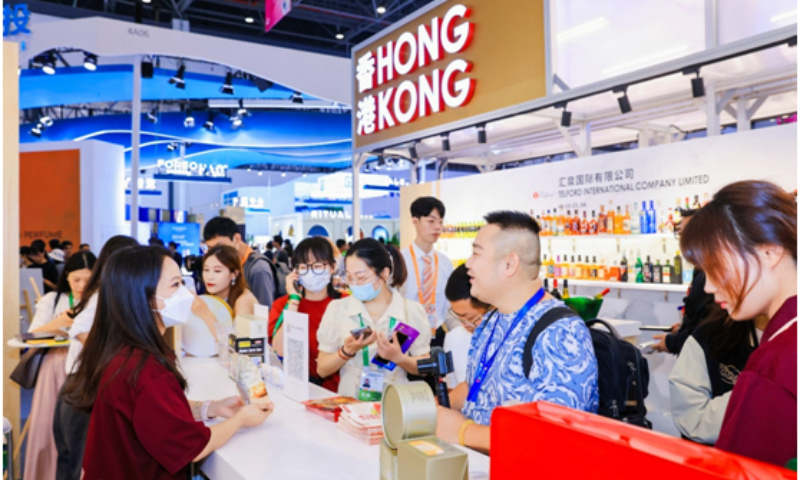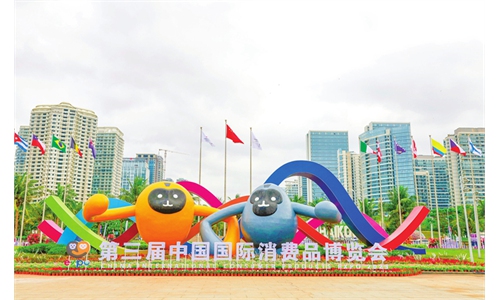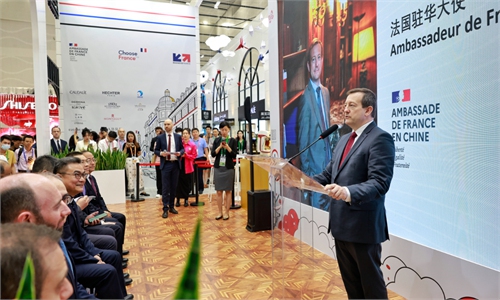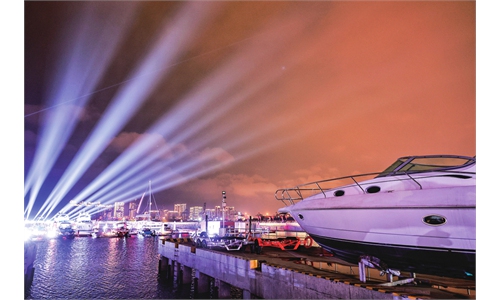Hainan, HKSAR ‘complementary rather than competing,’ says HK business representative

A view of the Hong Kong fashion pavilion at the third China International Consumer Products Expo (CICPE) in Haikou, capital of South China's Hainan Province. Photo: courtesy of Hong Kong Trade Development Council
Hong Kong enterprises in the food, watch and jewelry, fashion as well as healthcare and personal care products sectors have been actively participating in the third China International Consumer Products Expo (CICPE) in Haikou, capital of South China's Hainan Province, which kicked off on Monday and lasts until Saturday.
As this year marks the fifth anniversary of the construction of the Hainan free trade port, Hong Kong businesses told the Global Times that they're looking to establish themselves in the free trade port, through which they can tap into the vast market in the Chinese mainland and resonate with the national dual circulation strategy.
This year, the Hong Kong Trade Development Council (HKTDC) has set up a Hong Kong fashion pavilion at the expo, bringing a total of 50 Hong Kong brands from 22 companies, Peter Wong, the Southern China Regional Director of HKTDC, told the Global Times on the sidelines of the expo.
According to Wong, during the expo, some Hong Kong companies have been in touch with purchasing managers, e-commerce platforms and duty free shops based in the Chinese mainland for potential cooperation.
"Hong Kong businesses participated in the Hainan expo over the last two years, and have achieved good results. Some have already established bases in Hainan," Wong said, noting that Hong Kong companies are closely following relevant free trade port policies involving tariffs and other preferential tax treatment in Hainan.
The tropical island aims to establish a free trade port by the end of 2025, which will adopt the world's most advanced economic and trade rules. To date, a variety of exports to Hainan, such as vehicles, yachts, airplanes and production equipment already enjoy a zero-tariff policy.
Under the current policy, manufacturers who establish bases in Hainan and meet a 30 percent value-added processing threshold will be exempt from raw material import tariffs, which Wong said could be a big bonus for Hong Kong businesses that engage in deeper processing such as healthcare and jewelry enterprises.
Hainan's positioning as a free trade port has also led to heated discussion over whether the island will pose some competition for the Hong Kong Special Administrative Region (HKSAR). Wong stated that Hainan and the HKSAR are "complementary rather than competing."
"Hainan is in need of finance, talent and professional services, which the HKSAR could provide. And through cooperating with Hong Kong platforms, Hainan could introduce overseas funds and professional talent in accounting, laws and marketing. By working together, Hainan free trade port will grow faster and stronger," Wang said. He noted that the development of Hainan will have its own features, and will not just copy other free trade zones. But it could still draw upon the experience from the HKSAR.
In 2021, Hainan's actual use of foreign investment reached $3.519 billion, among which Hong Kong investment accounted for 77.2 percent, official data showed.




